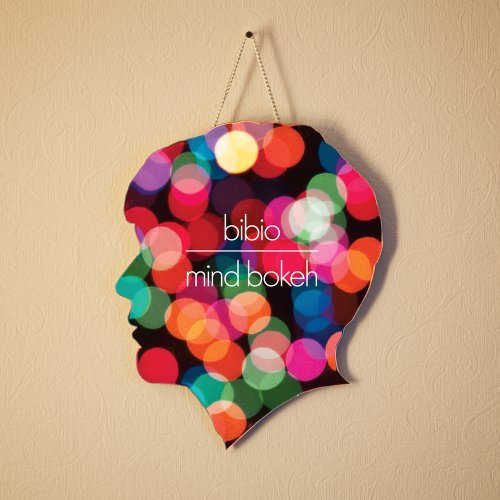
Bibio
Mind Bokeh
Release Date: Mar 29, 2011
Genre(s): Electronic, Pop/Rock, Alternative/Indie Rock, Club/Dance, Indie Electronic, Post-Rock, Electro-Acoustic
Record label: Warp
Music Critic Score
How the Music Critic Score works
Buy Mind Bokeh from Amazon
Album Review: Mind Bokeh by Bibio
Very Good, Based on 9 Critics
Based on rating 82%%
The problem with calling your album “bokeh,” the art of being unfocused, is the danger of living up to it. Mind Bokeh has all the cuts and scratches you’d expect from an album by a producer, but it’s jerky without being propulsive, mixing a swathe of styles with harsh funk, sudden stops and melancholy undertones. “Wake Up!” and standout “Take Off Your Shirt” find a great groove.
Based on rating 4.0/5
Review Summary: Bibio paints in watercolors.Who would’ve thought? English producer Stephen Wilkinson aka Bibio releases another album that bears little resemblance to any that came before. In case you missed the obvious, it comes with a handy signal: Mind Bokeh, his sixth album, is named after that particular photographic phenomenon of the blur, a singular aesthetic which goes hand in hand with Wilkinson’s genre-bending tendencies. “Folktronica” is a terrible term, but with 2009’s Ambivalence Avenue Wilkinson was well on his way to abandoning any and all genre tags.
Based on rating 4.0/5
Like karma, apparently there are good and bad versions of “bokeh,” a photography term referring to image blur. Bibio—a.k.a. British producer Stephen Wilkinson—has called his fifth album Mind Bokeh, a “balance of the familiar and the non-familiar,” but it’s clear from the music’s tone, atmosphere, and general pace that it’s less about the dynamic between two dissimilar concepts than about producing an intriguingly sensuous haze.
Based on rating 8/10
Bibio's Stephen Wilkinson had such a major breakthrough with Ambivalence Avenue that anticipation about whether or not he could maintain such a breakneck pace of innovation was palpable. Mind Bokeh -- whose title was inspired by the photography term for the way a lens renders out-of-focus points of light -- is true to its name and Wilkinson’s hyperactive creativity, but not in obvious ways. Though the title track dapples sparkling electronics over a luminous haze of distant nature samples, the rest of the album isn’t exactly blurry.
Based on rating 7/10
A sample of rain falling. Heavily filtered piano. The rain falls harder, forms puddles. Metal blades sharpen and fade back and forth between channels. Underneath all of this quiet noise a base line forms, coalesces with a tinny drum and synth sample, and at 2:15, Stepehen Wilkinson croons “How ….
Based on rating 6.9/10
After five full-lengths and a few EPs, Stephen Wilkinson's Bibio project continues to surprise. His first three albums combined tape-distressed versions of British folk with warbly ambient interludes, and he gradually added vocals that hinted at proper songs. During this stretch, he seemed like someone who wanted to completely master one idiom before he could muster the courage to move on to another.
Based on rating 1/5
There's an extra criterion at work when we assess electronic music, especially of the non-dancefloor-oriented variety: an expectation of innovation beyond our basic desire for newness. For example, while garage rock revivalists propagated and prospered through the 90s and 00s even after decades of stylistic recycling, UK garage saw a high-speed meiotic division into 2-step, bassline, UK funky, grime, dubstep, and sundry other subgenres. If a fresh-faced beatsmith makes a record redolent of Aphex Twin's Selected Ambient Works 85-92, it isn't tribute or traditionalism — it's stale.
Opinion: Excellent
Often, the further in one gets, the harder it is to come back out. Once you’ve delved so deeply into one particular thing – hobbies, careers, women – the commitment reaches a new high and suddenly, you’ve dug yourself a pretty deep hole. That isn’t to say that any one of those are bad things but, certainly, one should always maintain plenty of choices to choose from.
Opinion: Very Good
A wilfully eclectic pick’n’mix affair from a producer on fine form. Paul Clarke 2011 It’s common practice in electronic music to record under myriad aliases; the likes of Aphex Twin, Carl Craig and Tom Middleton all boasting more disguises than the MI6 dressing-up box. The reasoning being less about making the trainspotters put the work in; more to prevent records being pigeonholed before they’ve even been taken out of the sleeve.
'Mind Bokeh'
is available now

